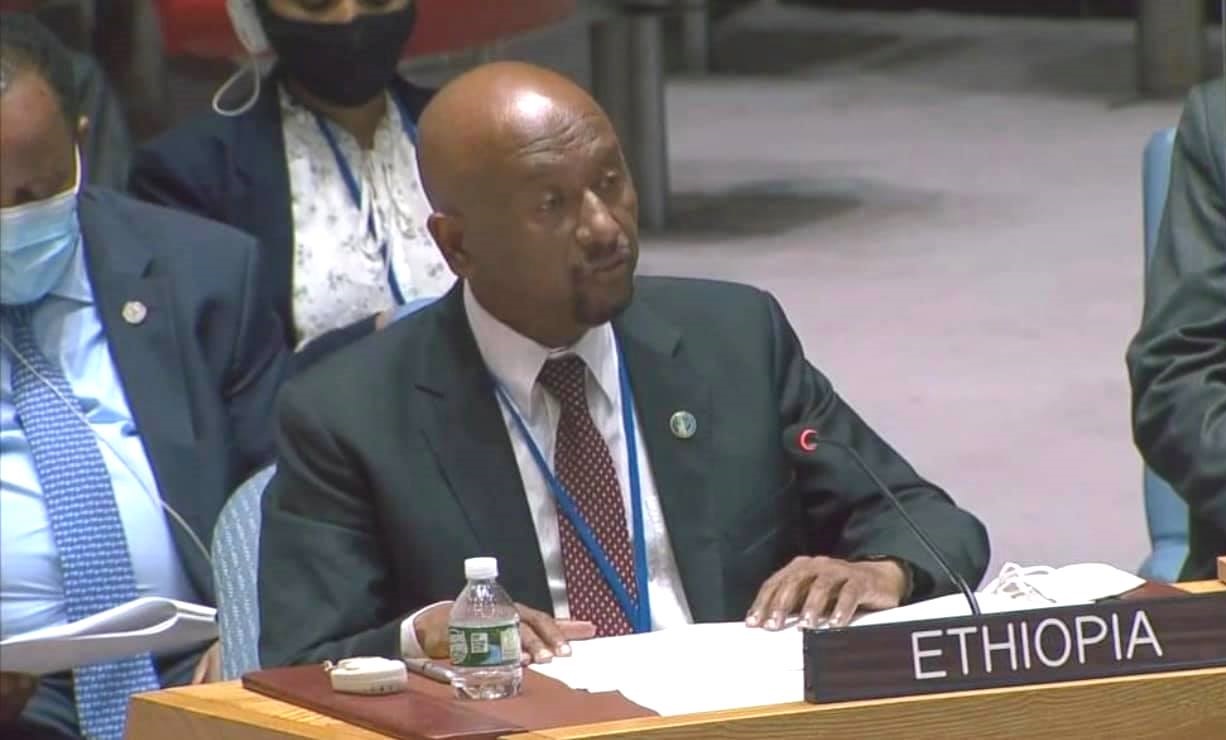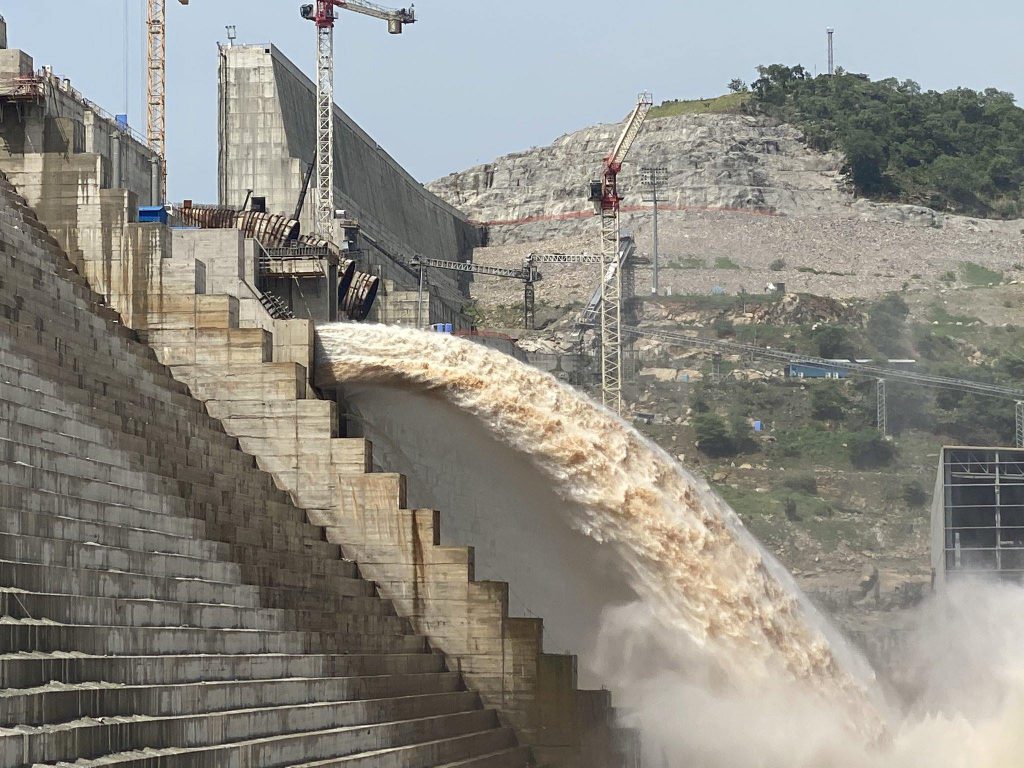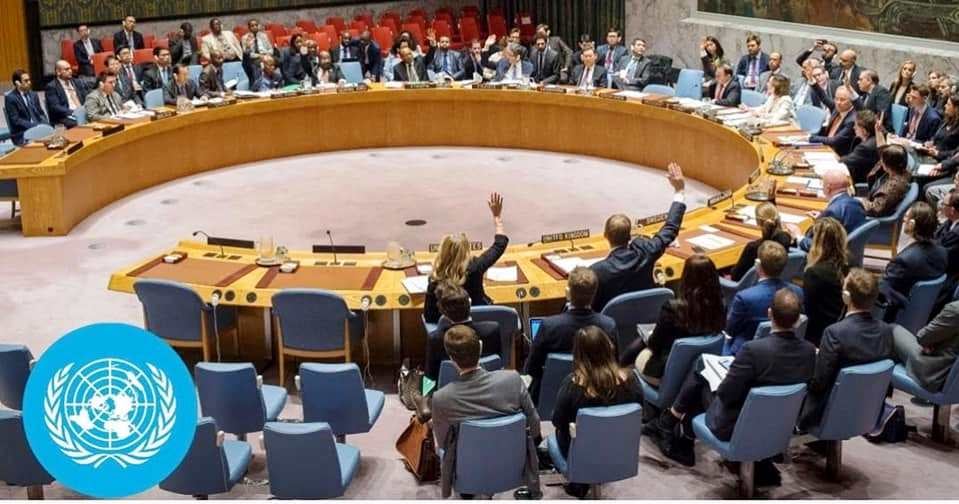Egypt, Sudan Should Consider GERD A Tool to Promoting Peace and Cooperation in Africa - ENA English
Egypt, Sudan Should Consider GERD A Tool to Promoting Peace and Cooperation in Africa

Staff Writer
Statistics indicate that the world's 263 transboundary lake and river basins cover nearly half of the Earth's land surface. A total of 145 nations include territory within international basins, and 21 countries lie entirely within international basins. The Nile River is one of the longest transboundary rivers in the world cruising through 11 riparian countries.
Except for Sudan and Egypt who enjoyed a colonial monopoly of the river for thousands of years, the reset of the riparian countries have never benefited from this river. Ethiopia who contributes more than 86 percent of the Nile waters with 77 billion cubic meters of water from the Blue Nile not only did not benefit from its own water resources but was also totally ignored in the treaties that shared water between Sudan and Egypt for thousands of years.

However, in April 2011, Ethiopia embarked on constructing the Grand Ethiopian Renascence Hydro Electric Dam. The people and Government of Ethiopia are funding the project, which will not only serve Ethiopia, but Sudan and Egypt as well. The latter two countries depend on the Nile River for their water although 86 % of the river flows in from Ethiopia.
A tripartite committee was formed in 2012 to promote understanding and look into the benefits and impacts the project would have on the three countries but due the delaying tactics and intransigence by Sudan and Egypt who vehemently opposed and rejected Ethiopia’s rights to use its own resources the negotiations were put on logjam for ten years.
A major breakthrough was reached on March 5, 2015 whereby the heads of states of Ethiopia, Sudan and Egypt inked a the Declaration of Principles (DoP) which set a major cornerstone for the equitable utilization of the waters of the Blue Nile on the basis of major principles which included the principle of cooperation based on mutual understanding and common interest as well as proper consideration of the water needs of upper stream and downstream countries based on international law, regional integration for sustainable development, causing no significant damage on any country, fair and appropriate use, building trust, exchange of data, dam security, filling the dam and peaceful settlement of disputes.
Throughout the years of the construction of the dam, Ethiopia adhered to the principles indicated in the DoP through public funds in of the project in the form of purchase of bonds and free donations. Regrettably, but the negotiations on GERD were interrupted due to the sabotages from Sudan and Egypt, formation of a network of misinformation through foreign based and local media outlets, outright military threats to bomb GERD appeals to the major western powers, EU, Arab League and individual Arab countries.
Contrary to the mandates of the UNSC, Sudan and Egypt were seeking for a resolution which demanded the condemnation and ultimate stoppage of the construction of GERD.
Speaking at the special meeting of the UNSC, Dr. Engineer Seleshi Bekele, Minister of Water, Irrigation and Energy, told Council Members that While 70% of Ethiopia’s water sources come from surface water, Egypt, utilizes the Nile for 100% of its hydropower energy needs and has 90% ground water sources.

The Minister stated that it was wrong to take a hydro-technical issue to the UNSC in an attempt to depict Ethiopia’s need for electrical energy as national security issue while it is clear that it is purely a development issue.
He added that the construction and utilization of GERD also relates to shaping the future of 100 thousand Ethiopian who graduate from the institutes of higher education of the country while 30 million children are already going to school at various levels of education. He mentioned the plight of thousands of Ethiopians who are subjects to mass deportation and those who languished in dungeons in the Middle East. He called upon Sudan and Egypt to engage in greening projects in the context of Green Belt Initiative of Africa.

Despite the treacherous and manipulative diplomacy that Egypt pursued, almost all UNSC members and non-permanent member countries called for reauthorizing the AU to handle the stalemate on negotiations on GERD in line with the principles of mutual benefits, settlement of of African conflicts in the African way, China, Russia, Mexico, India, Ireland, USA, DRC, Rwanda and UK voiced their full support for the tripartite negotiations to be conducted under the coordination of AU which has already demonstrated its capacity to handle GERD issue.
These countries also upheld the importance of DoP as an important legal instrument to help solve the major issues of disagreement on GERD.
To the dismay of the international community and particularly African members of the UNGA and UNSC, Sameh Hassan Shoukry, the Egyptian Foreign Minister exhibited his county’s total lack of respect for AU and the capacity of the continental organization to address the issue of GERD by shamelessly uttering that AU can never bring about a lasting solution to the GERD stalemate.
For Egypt and Sudan any kind of solution is unacceptable if it does not confirm the monopolistic right of both countries to use 100% of Nile waters with total rejection of the legal rights of other riparian countries to use the Nile for their development. Both countries are engaged in a diplomatic rampage outside of the African continent while GERD is located in Africa and is an African dam which generates power to be used jointly by African countries. In this sense, both Egypt and Sudan are opposing the national interests of all 11 riparian countries while they fly to every corner of the world to claim that the Nile waters is their sole property and cannot be share with any African country.
Both countries are swinging between Pan Arabism and give only a quasi-diplomatic overture to Pan Africanism, Agenda 2063 and other African strategic development programs. Egypt strives to gain diplomatic success by promising development assistance to a number of African countries as a tool for its irredentist desires.
GERD is indeed a living symbol for fraternity, mutual cooperation in development among African countries and a tool for promoting peace in the Horn of Africa. This dam has nothing to do with politics is not a diplomatic bandwagon for any level of confrontation with Egypt and Sudan.
The current political nihilism that is being fanned on Ethiopia forgets the fact that these countries are here to live together as neighbors and it would be unfair to transmit a spirit of animosity to the current and future generation of the three countries.
Hence, Egypt and Sudan should work hard to promoting GERD as a vital instrument to promoting peace, cooperation and economic development as the project aims at providing benefits not only Ethiopia but also to other countries in the region including Egypt and Sudan. In order to settle the ongoing dispute as early as possible, the two countries are expected to abide by the agreement of DoP and ready to resume the negotiation under the leadership of the African Union as strongly suggested by the members of the UN Security Council last Thursday.